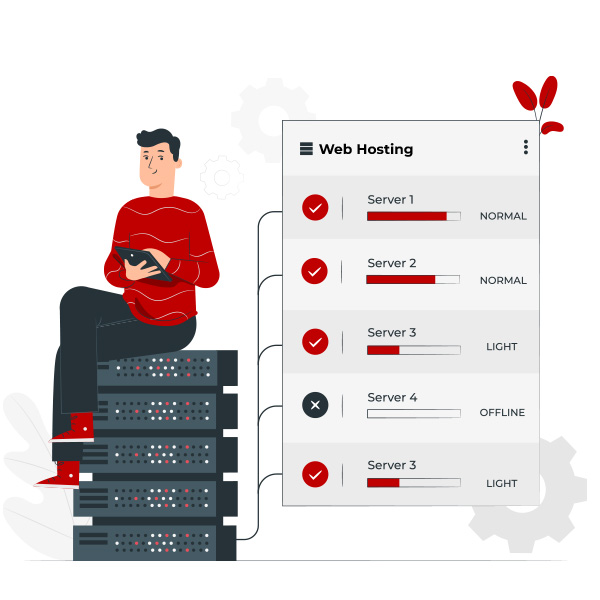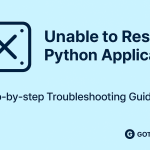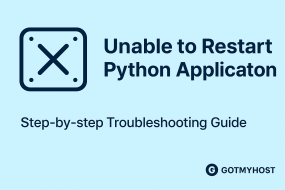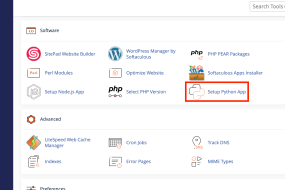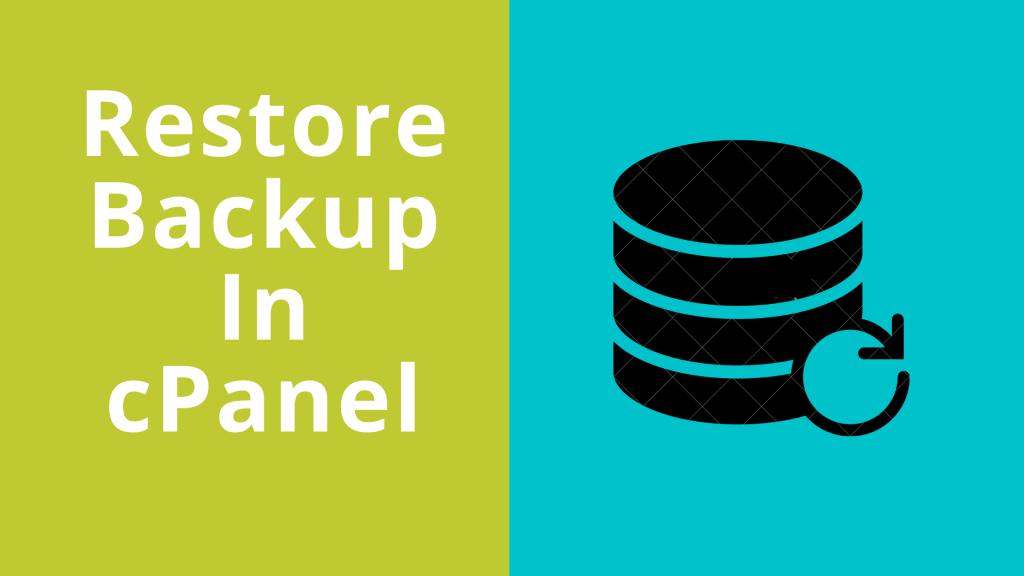
To restore the backup of your Website follow the steps :
If you are using the JetBackup interface, then this tutorial is for you, and you will learn how to restore backups in cPanel.
JetBackup provides users with 6 different options for creating backups in their cPanel and can be conveniently located in its own section of your cPanel under “JetBackup”.
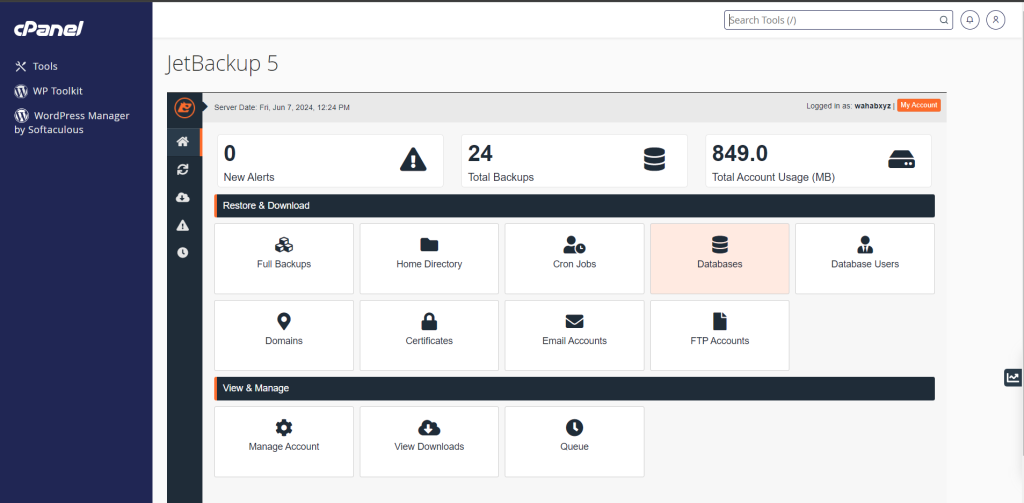
- Full Account Backups
- File Backups
- Cron Job Backups
- DNS Zone Backups
- Database Backups
- Email Backups
Below, we’ll review the details and what is possible for the most popular and frequently used JetBackup options: full account backups, file backups, and database backups.
How to restore Full Account Backups:
1. The first step would be to log into your cPanel.
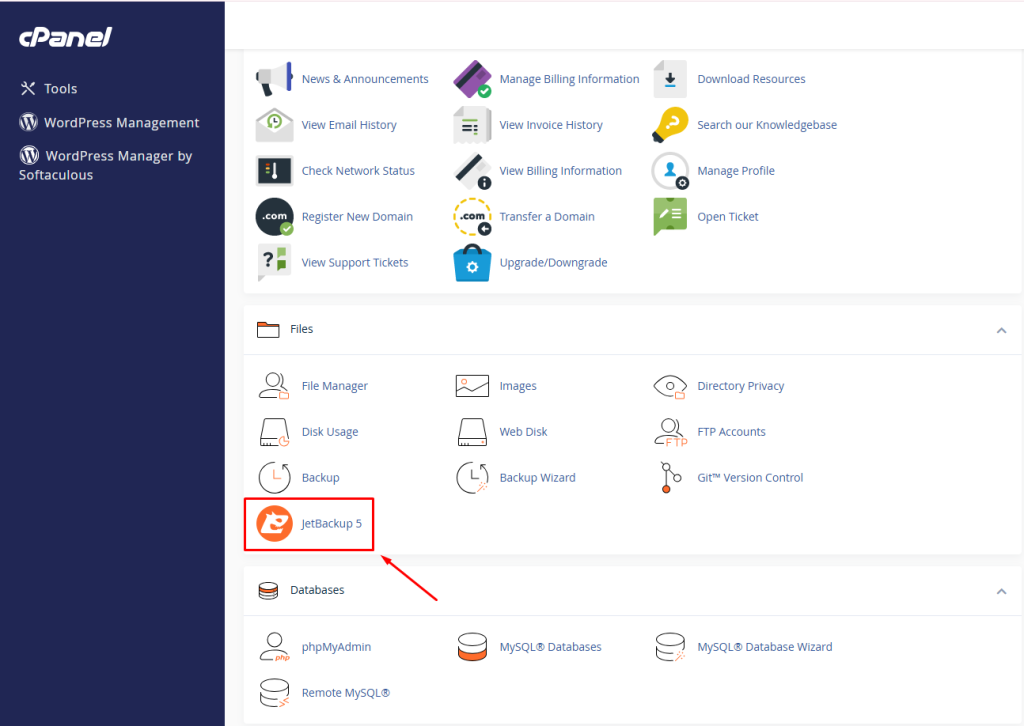
2. Once logged in, go to JetBackup and click on the Full Account Backups icon.
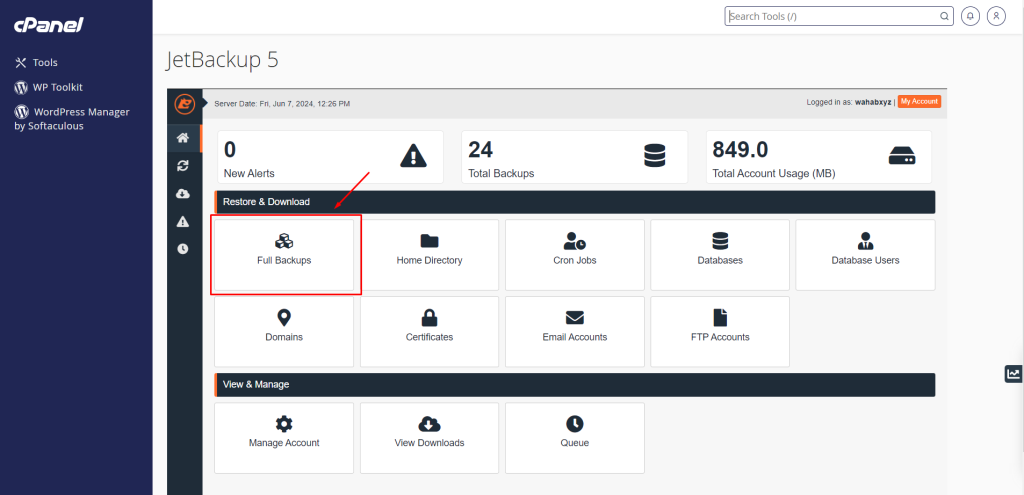
3. In the next window, you will be able to choose your desired restore point (date) and the backup to restore from.
4. To restore a full account backup, click on the Restore button.
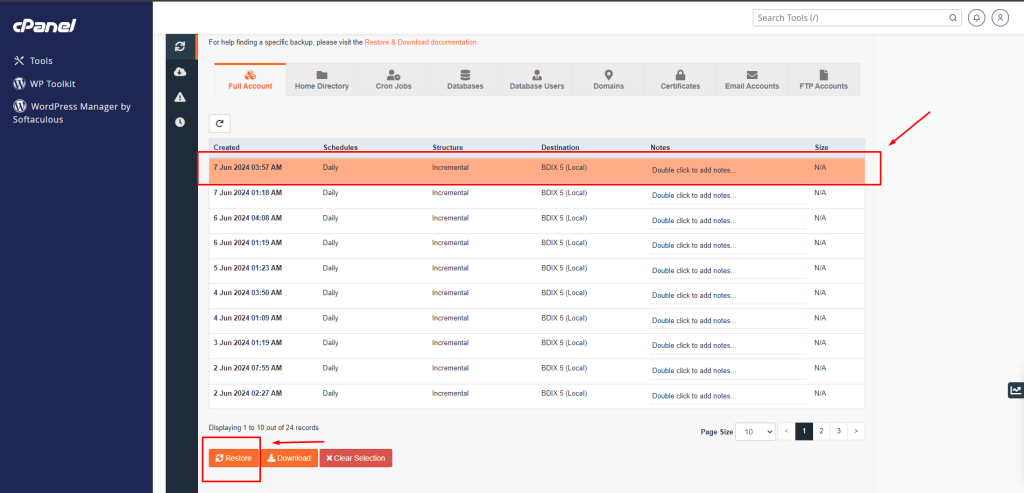
5. Once the full backup is initiated, you can view the progress from cPanel’s dashboard > JetBackup > Queue.
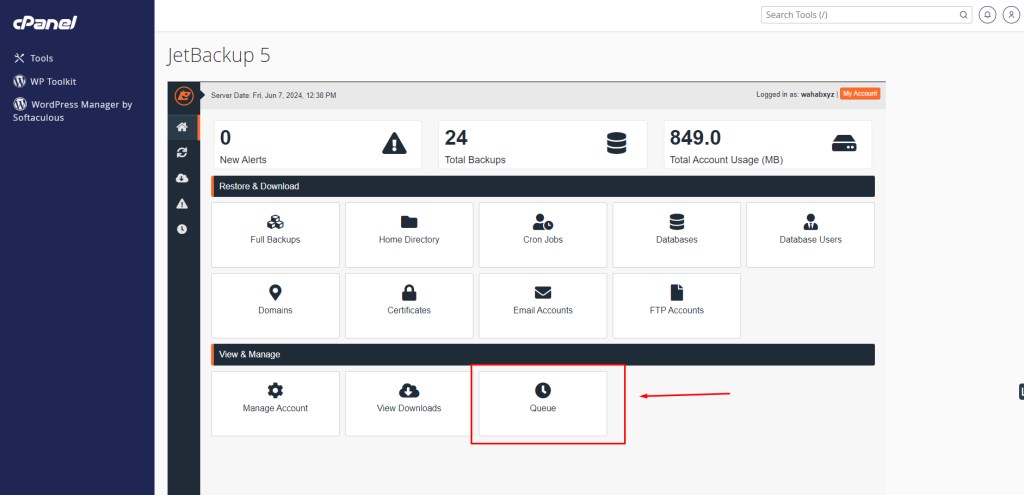
6. Wait for the restoration job to finish.
The queue status “Completed” means that the restore has been successful. If you get the queue status “Failed” you may try another date, or contact our Support.
Downloading a Full Backup
This feature comes in handy in case you’d like to download a full backup of your account and save it to your computer. Let’s download one of our backups!
1. First, click Generate Download from the far right column. This will instruct JetBackup to reach out to our off-site backup servers and fetch your backup files.
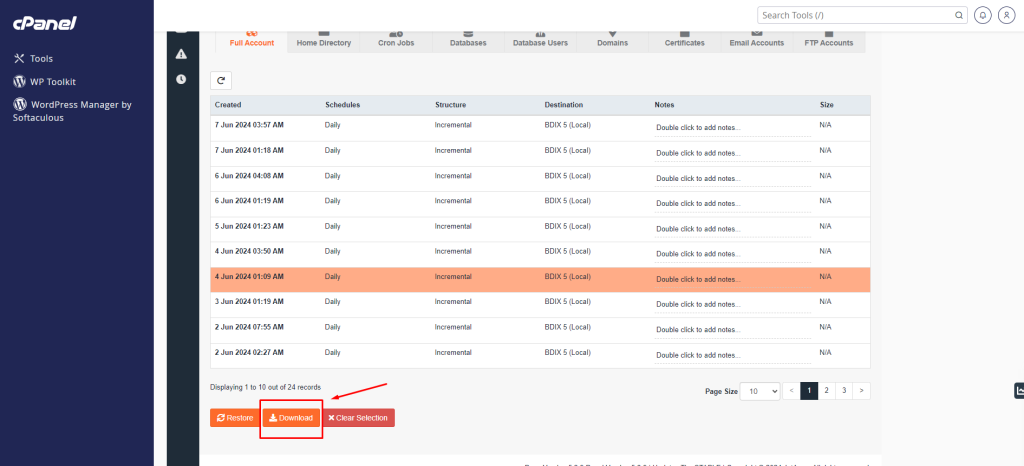
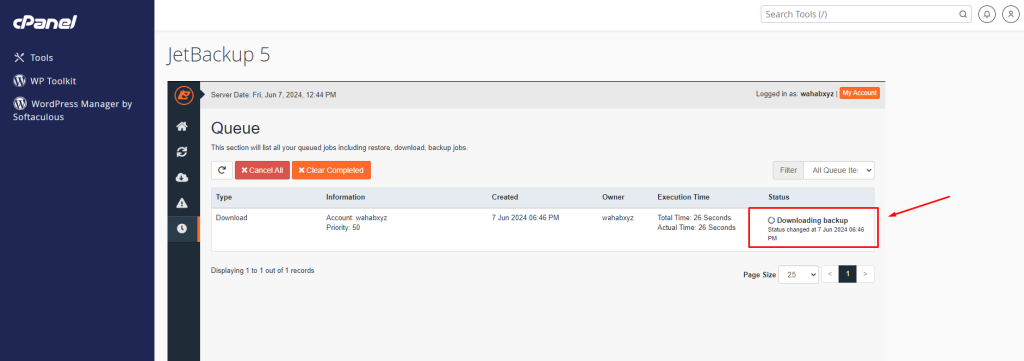
2. Once the full backup is initiated, you can view the progress from cPanel’s dashboard > JetBackup > Queue.
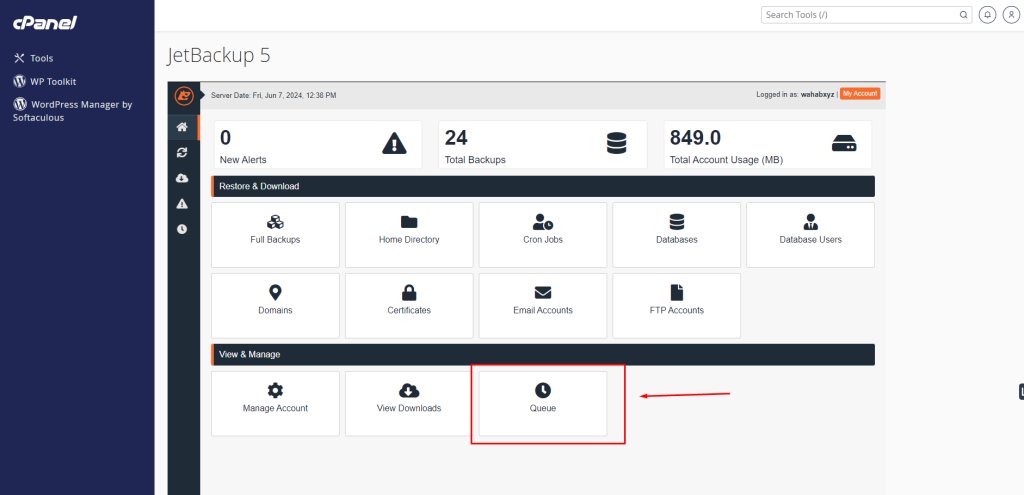
3. After a few moments, once the backup has been completed, you will see the option to Download the Backup button.
4. Click this to download and save your backup file to your computer.
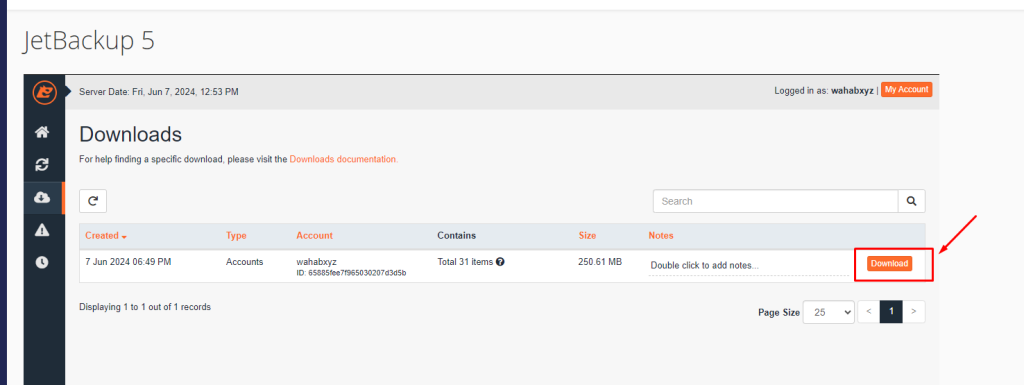
After you have successfully downloaded the backup to your computer, you can click “Delete Download“. This will remove the backup from your hosting account so it’s not consuming any space.
How to restore File Backups
1. The first step would be to log into your cPanel.
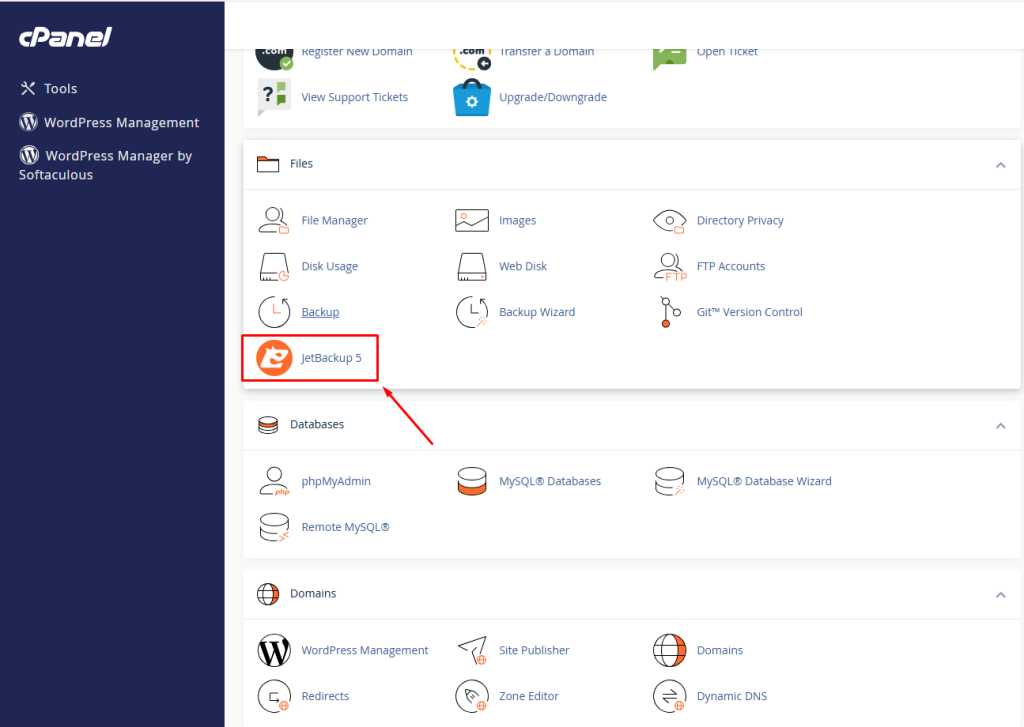
2. Once logged in to cPanel, to restore files or folders on your account, go to JetBackup and click on the Home Directory icon.
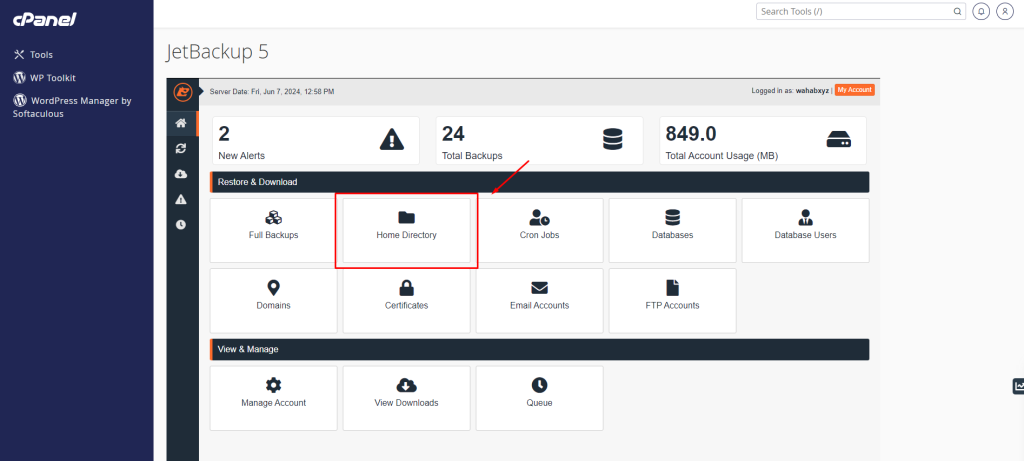
3. In the next window, you will be able to choose your desired restore point (date) to restore from.
Once you’ve decided on the restore date, the next step is to use the File Selection, which will help you browse through your account’s file system.
4. Click on the File Manager under Actions.
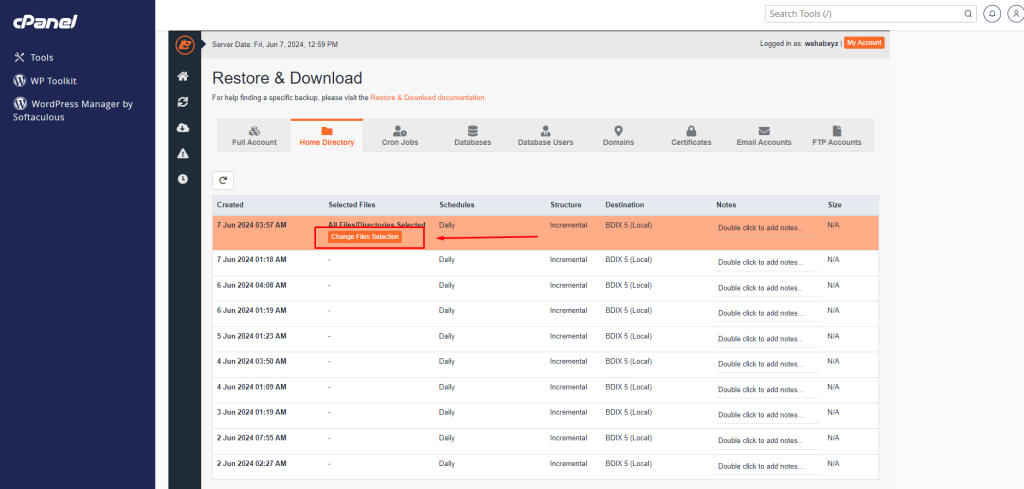
In the next window, you will see all the files and folders inside your account’s home directory.
Important Options to Note While Using the File Manager
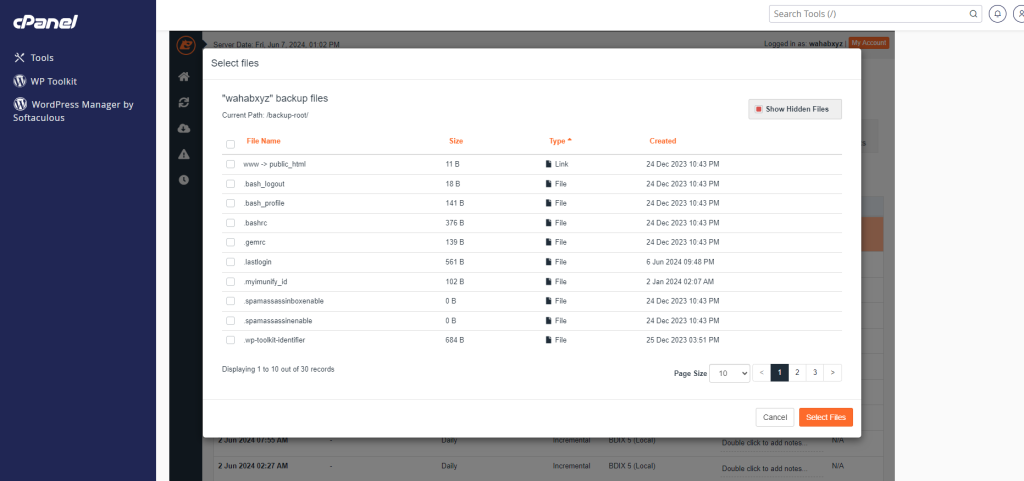
The current path will reflect the directory you are viewing in the file manager.
Select all will check all files and folders in the directory for you.
Download Selected will instruct JetBackup to create a compressed file for you containing the file(s) and/or folder(s) you’ve checked.
Restore Selected will restore the file(s) and/or folder(s) you have checked to the server just as they were prior to the files being deleted.
Show Hidden Files instructs the file manager to display system files, which are typically not needed for most backup or restore operations, for your convenience.
Alright! Now that you are familiar with the File Manager options, let’s proceed and do a file backup restore.
In my example, I’ll do a restore for the site on my cPanel’s primary domain. The document root for your primary domain; it’s always the public_html folder.
5. You will see all the files and folders inside your account’s home directory. In my case, I will select only “public_html“.
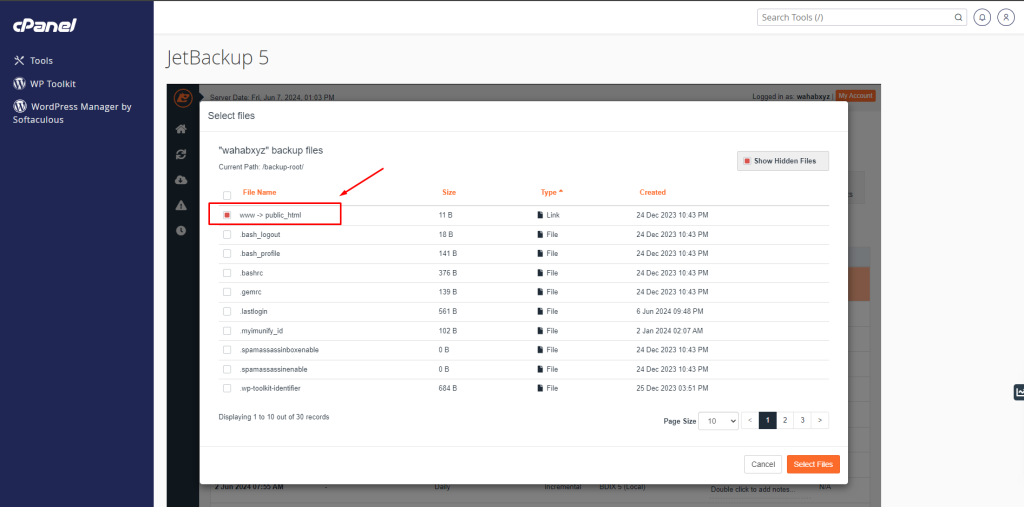
6. Once the public_html folder is selected click on the “Restore Selected” button.
7. Tick the box Are you sure you want to restore this account?
8. Click on the Add to Restore Queue button
9. Once the file backup is initiated, you can view the progress from cPanel’s dashboard > JetBackup > Queue.
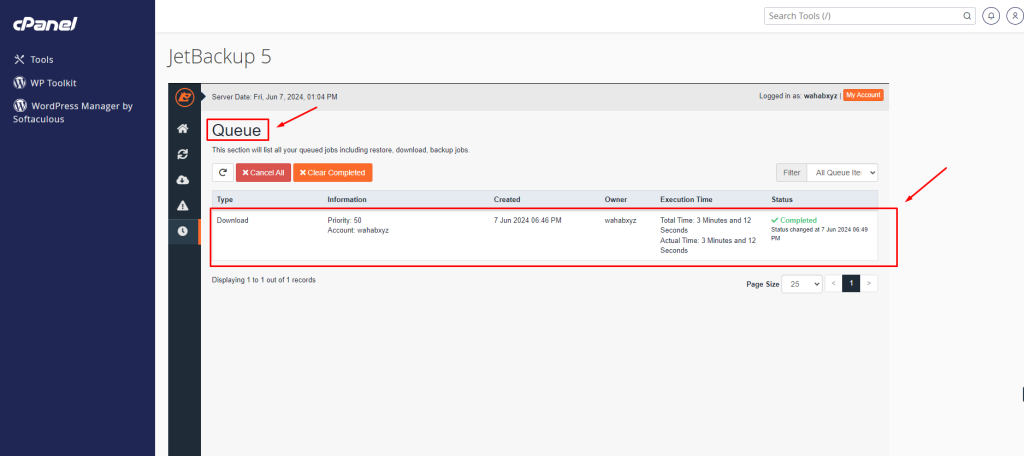
10. Wait for the restore job to finish
The queue status “Completed” means that the restore has been successful. If you get the queue status “Failed” you may try another date, or you may contact our Support.
How to restore Database Backups
1. The first step would be to log into your cPanel.

2. Once logged in to cPanel, in order to restore files or folders on your account, go to JetBackup and click on the Database Backups icon.
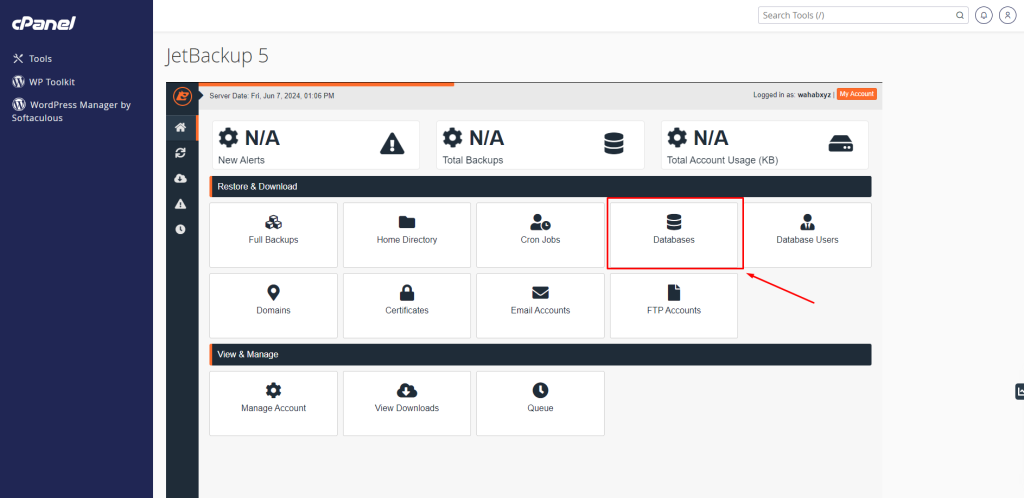
3. In the next window, you will be able to see all your databases and choose your desired restore point (date) to restore from.
Once you’ve decided on the restore date, the next step is to use the Restore button.
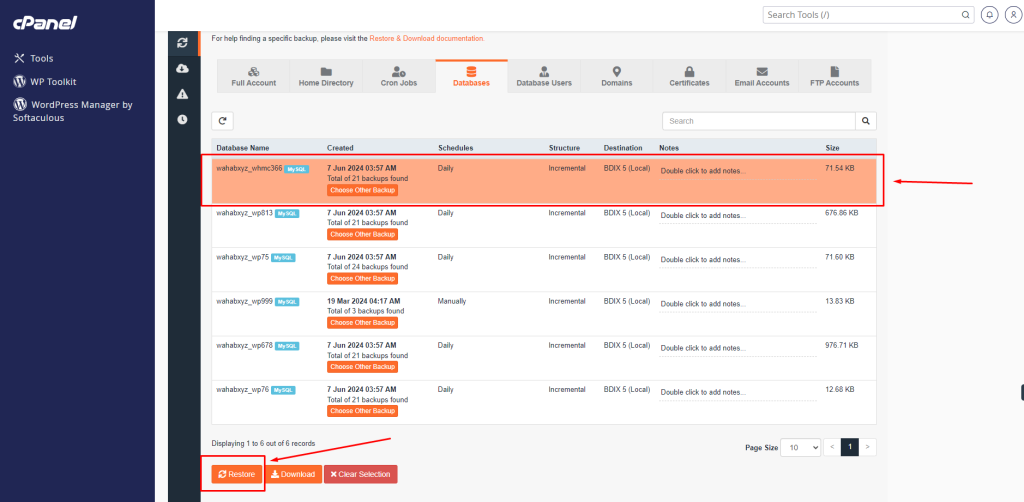
Tick the box Are you sure you want to restore this account?
4. Click on the Add to Restore Queue button
5. Once the database backup is initiated, you can view the progress from cPanel’s dashboard > JetBackup > Queue.
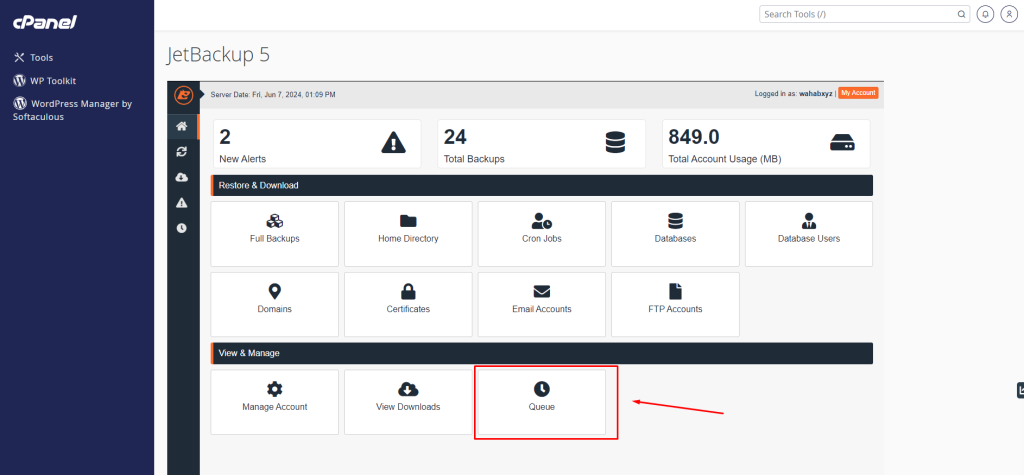
6. Wait for the restore job to finish.
The queue status “Completed” means that the restore has been successful. If you get the queue status “Failed” you may try another date, or you may contact our Support.
How to restore Email Backups
1. The first step would be to log into your cPanel.
2. Once logged in to cPanel, in order to restore emails on your account, go to JetBackup and click on the Email Accounts icon.
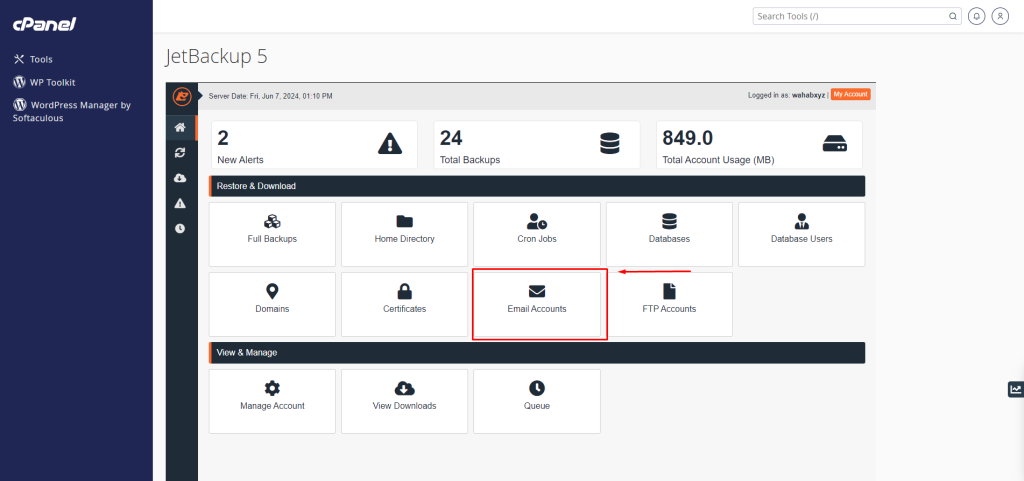
3. In the next window, you will be able to see your email addresses and to choose your desired restore point (date) to restore from.
4. Once you’ve decided on the restore date, the next step is to use the Restore button.
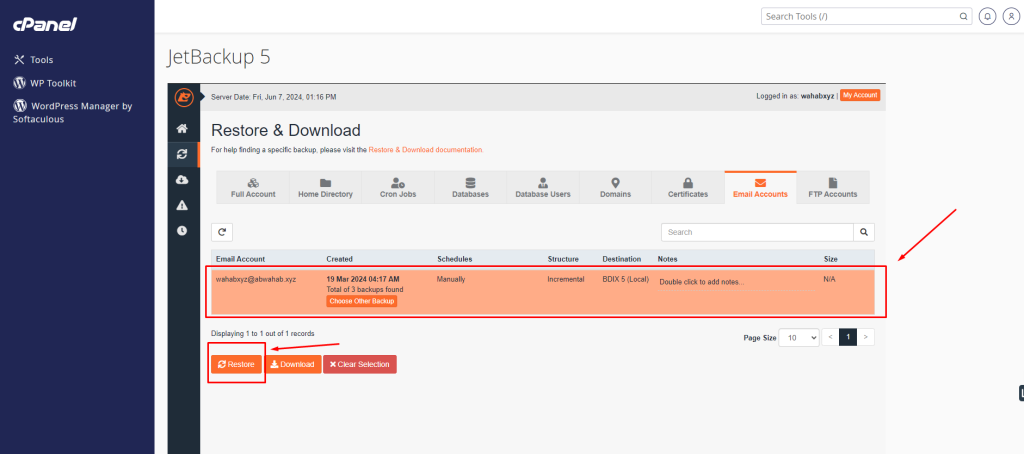
Tick the box Are you sure you want to restore this account?
5. Click on Add to Restore Queue button
6. Once the email backup is initiated, you can view the progress from cPanel’s dashboard > JetBackup > Queue.
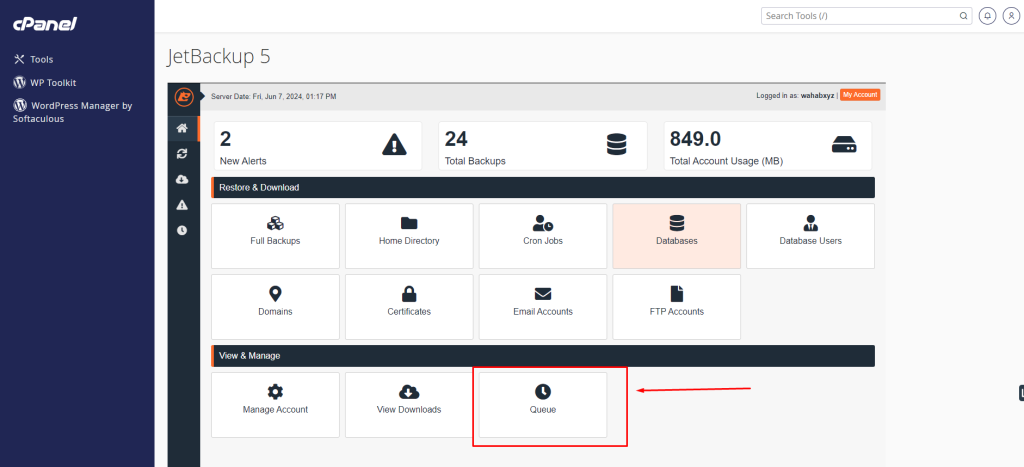
7. Wait the restore job to finish.
The queue status “Completed” means that the restore has been successful. If you get the queue status “Failed” you may try another date, or you may contact our Live chat Support or contact with us in support ticket.


